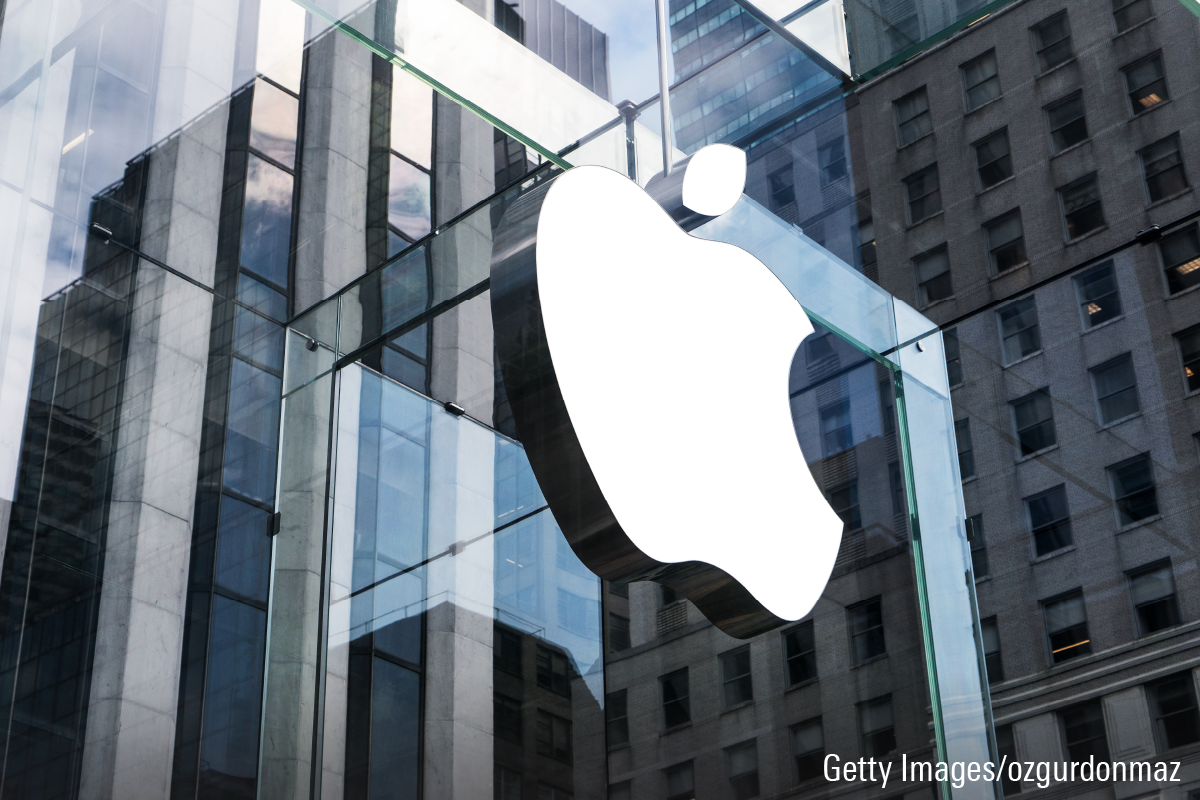Is Apple Stock a Buy Ahead of Earnings?
Morningstar recently upgraded its economic moat rating and fair value estimate.

Apple’s AAPL consumer hardware dominance stems from the company’s ability to package hardware, software, services, semiconductors, and third-party applications into sleek, intuitive, and appealing devices. This expertise, coupled with its walled garden approach for its unique iOS ecosystem, enables Apple to capture a premium on its devices, unlike most of its peers that rely on open operating systems like Windows and Android. We see no other technology titan with comparable expertise across consumer hardware, software, services, and chip design. In turn, we believe this integration allows Apple to build premium devices that command industry-leading average selling prices and margins, most notably its crown jewel: the iPhone.
Key Morningstar Metrics for Apple
- Fair Value Estimate: $150
- Star Rating: 3 Stars
- Economic Moat Rating: Wide
- Moat Trend Rating: Stable
Economic Moat Rating
Our wide economic moat rating is based on the combination of switching costs, intangible assets, and network effects associated with Apple’s iOS ecosystem. We think the company’s primary moat source stems from high customer switching costs based on many aspects of Apple’s hardware, software, and services. We view the smartphone as the most essential computing device for users, and despite innovations in other types of electronic devices, we don’t see it going away anytime soon. The smartphone has already replaced a host of stand-alone electronics devices while emerging as the primary portal with an intuitive interface for many other digital services in a pocket-size form. The iPhone fostered the industry and has maintained its position as the premier smartphone, and we expect Apple to increasingly monetize its valuable installed base with the iPhone as the catalyst.
Read more about Apple’s moat rating.
Fair Value Estimate for Apple Stock
Our $150 fair value estimate implies a forward GAAP price/earnings ratio of 24 times. In fiscal 2023, we expect total revenue to be up 3% thanks to strength in iPhone, wearables, and services sales, partially offset by weaker Mac and iPad revenue following multiple strong years associated with working- and learning-from-home trends due to COVID-19. We expect services to grow at a 7% compound annual rate over the next five years, while wearables, home, and accessories revenue should generate strong high teens growth. We expect gross margins to normalize around 40%, thanks to Apple’s exceptional premium pricing strategy and stable iPhone margins. We expect operating margins to remain around 30% over our five-year forecast period.
Read more about Apple’s fair value estimate.
Risk and Uncertainty
Apple is prone to material competition. Over the course of its iPhone-fueled dominance, Samsung, Microsoft MSFT, and Alphabet GOOG have taken their best shots at Apple, with fleeting success. In consumer hardware, short product cycles and customers hungry for superior features make market leadership difficult to maintain. Some peers like Amazon AMZN are willing to sell hardware at essentially cost to drive market share and stickiness in other business segments. Should these devices supersede their iOS counterparts, Apple’s devices may be at risk. Also, Apple’s app store commission structure is facing legal and regulatory scrutiny; service revenue could be hurt if any antitrust rulings go against the company.
Read more about Apple’s risk and uncertainty.
Apple Bulls Say
- Between greater smartphone penetration in emerging markets and repeat sales to current customers, Apple has plenty of opportunity to reap the rewards of its iPhone business.
- Apple’s iPhone and iOS operating system have consistently been rated at the head of the pack in terms of customer loyalty, engagement, and security, which bodes well for long-term customer retention.
- We think Apple is still innovating with introductions of Apple Pay, Apple Watch, Apple TV, and AirPods; each of these could drive incremental revenue but more crucially help to retain iPhone users over time.
Apple Bears Say
- Apple’s decision to maintain a premium pricing strategy may help fend off gross margin compression but could limit unit sales growth, as devices may be unaffordable for many customers.
- If Apple were to launch a buggy software update or subpar services, this could diminish its reputation for building products that “just work.”
- Apple is believed to be behind companies like Google and Amazon in artificial intelligence development (notably Siri voice recognition), which could be problematic as tech companies look to integrate AI in order to deliver premium services to customers.
Remove the guesswork and make informed decisions faster. Morningstar Investor’s stock ratings, analysis, and insights are all backed by our transparent, meticulous methodology. Learn more and start a seven-day free trial today.
The author or authors do not own shares in any securities mentioned in this article. Find out about Morningstar’s editorial policies.

/s3.amazonaws.com/arc-authors/morningstar/426795a6-50a8-4320-8dea-8c93d2bfd246.jpg)
/cloudfront-us-east-1.images.arcpublishing.com/morningstar/ZZNBDLNQHFDQ7GTK5NKTVHJYWA.jpg)
/cloudfront-us-east-1.images.arcpublishing.com/morningstar/HE2XT5SV5ZBU5MOM6PPYWRIGP4.png)
/cloudfront-us-east-1.images.arcpublishing.com/morningstar/AET2BGC3RFCFRD4YOXDBBVVYS4.jpg)
:quality(80)/s3.amazonaws.com/arc-authors/morningstar/426795a6-50a8-4320-8dea-8c93d2bfd246.jpg)